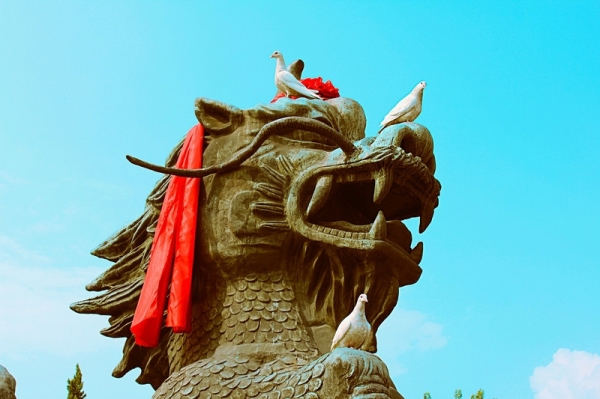What’s China’s gamble to back Moscow means for EU
Just as it was expected to be entering the cruising altitude of the announced "Chinese century", China suddenly does not seem to get a step right. First the country botched its response to Covid-19 pandemic. Now it is throwing its weight behind Russia’s unprovoked, illegal and genocidal war against Ukraine. All of this comes at a massive cost to China’s own best interest and international standing.
In the space of less than a year, China has thrown away a narrative that it carefully nurtured over decades. China’s "peaceful and harmonious rise in the global system" is no more. Its "commitment to the path of peaceful development" are just empty words, in light of its active and passive support for belligerent Russia in its illegal war against the sovereign state of Ukraine.
How different it could have been.
At the outset of Russia’s — and now also China’s — war, China stood to benefit from a massive peace dividend. It should have had the interest and it held the keys to end this war. Should it have played it cards accordingly, the world community would have instantly recognised China’s new global role and ‘its coming of age’ moment. It is difficult to see that Deng Xiaoping, Jiang Zemin or Hu Jintao would have missed this opportunity.
China’s dubious position
However, China chose another path. As China continues to call Russia’s invasion and war the "Ukraine crisis", it fails to recognise Russia as the aggressor and Ukraine as the victim.
When an overwhelming majority of the world’s countries have voted for resolutions at the UN General Assembly, calling for Russia to withdraw from Ukraine and end the war with immediate effect, China has placed itself in a very dubious minority by abstaining.
By siding with tin-pot dictators, failed states and other unprincipled entities, China reveals more of itself than it perhaps intended.
While China has wanted to portray Russia’s war on Ukraine as a conflict between neighbours where third parties like itself can try to act as mediators, its actions are not those of a neutral state.
China’s willingness to support Russia’s economy and Chinese state media’s role in repeating Russian propaganda are examples of this.
Chinese exports of military equipment to Russia since the start of the war and recent suggestions that China is considering to also provide lethal aid to Russia make it an aggressor, not a peace-maker.
China’s recent Position on the Political Settlement of the Ukraine Crisis is far from a credible opening for peace talks in its own right, as it fails to acknowledge Russia’s violation of Ukrainian sovereignty and to provide a concrete plan.
Equally importantly, China’s own credibility as an honest broker for peace talks has been seriously undermined by its own actions.
China’s ambivalence towards the atrocities committed by Russia and its open and covert support to the perpetrators have brought into question its commitment to its own principles of peaceful coexistence, sovereignty and territorial integrity.
With its words and actions, China has sided with Russia that is massacring civilians in a neighbouring country, destroying cities, bombing homes, mining playgrounds, kidnapping and torturing people, and forcing Ukrainians to become refugees.
As it stands, China, through its ill-considered and unprincipled support for Russia’s war, has severely harmed its global status and prestige. Supporting Russia risks further slowing down Chinese economy and weakening its global power.
China’s choice — now
China could still try to correct the mistakes made — and this should be its overriding interest. A good place to start would be to align with the majority of the world community in recognising that in this war, one neighbour is killing and torturing the other one and illegally stealing her property, and ending this war requires stopping the aggressor. It would require helping the one being attacked rather than actively supporting the attacker.
China has the power to discontinue Russia’s capability to continue its murderous attack and help Ukraine.
By condemning Russian aggression and stopping trade that benefits the Russian war economy, China could still try to rescue its image in front of the global community. It could still help ensure that the on-going reordering of the world’s economic and political system will not lead to a polarised world that will ultimately be bad for the Chinese economy and its international standing.
Should China, however, decide to continue or, worse, escalate its support for Russia’s war, this will inevitably make the West even more united. The EU will have no other choice than, for example, sanction Chinese companies that are engaged in supporting the Russian war effort and increasingly dismantle supply chains involving China.
The future EU-China relations are defined today.
China has numerous times called on the EU not to follow the US lead and not to choose the US over China. However, China’s current approach on Ukraine means that it is actually making this decision for the EU. Should China stay on its current path, its wishes and hopes for mutual trust or deepening cooperation with the EU will be killed by its own actions.

